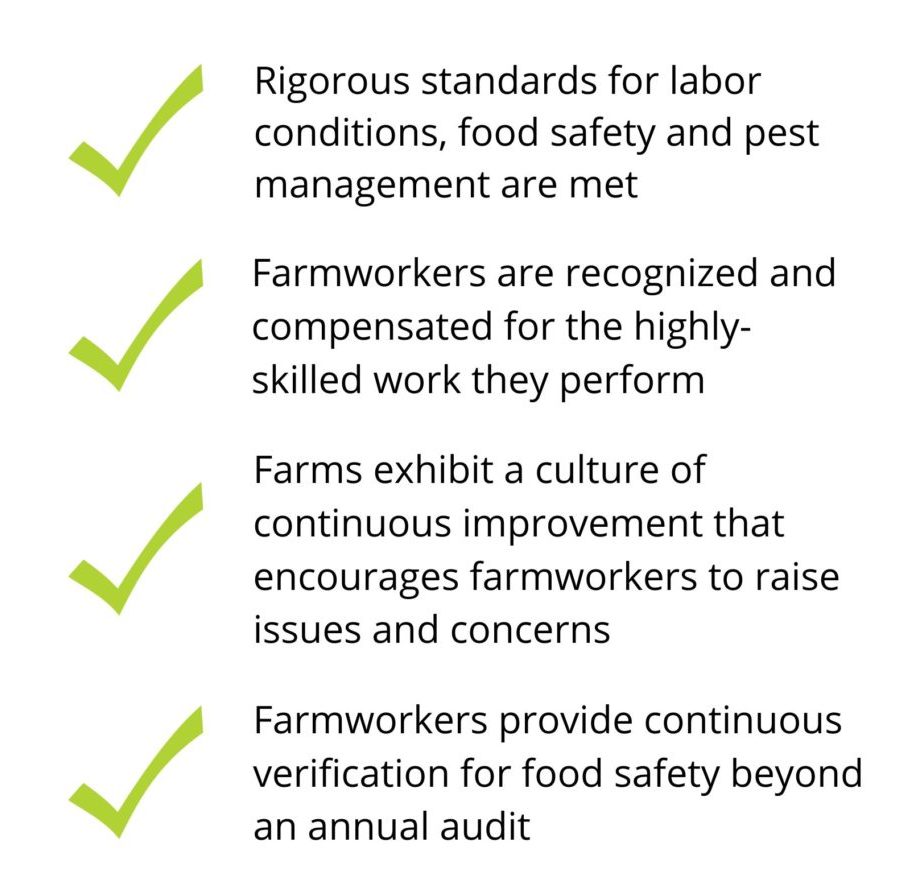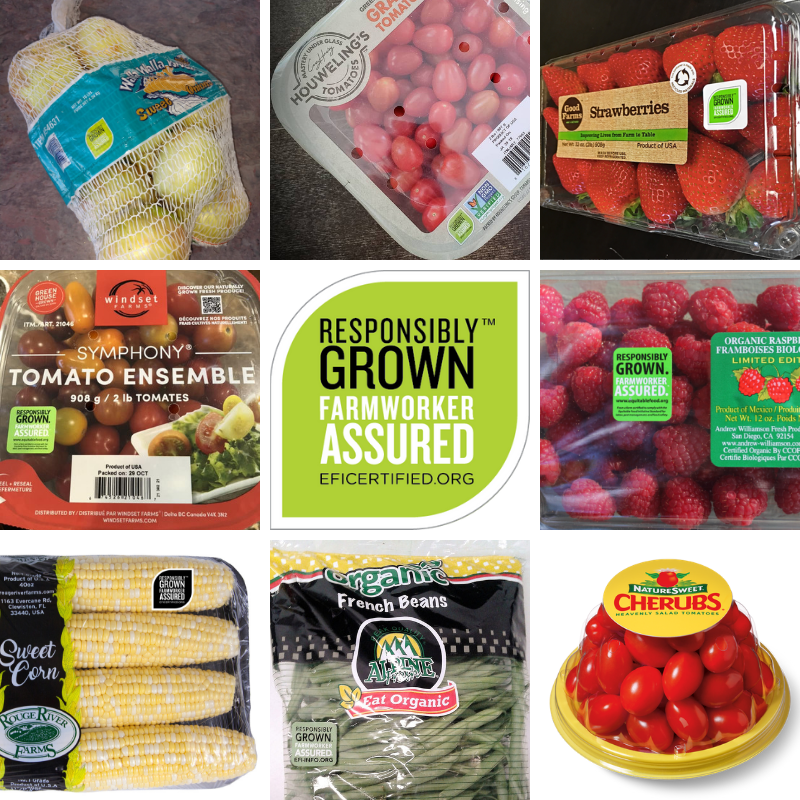Participating Retail Buyers
Receive Higher Levels of Assurance for Food Safety and Working Conditions With EFI Certification
The EFI Certification Program was created to provide added assurance to retail buyers around labor conditions, food safety and pest management. To become EFI-certified, farming operations must meet the highest industry standards, but more importantly, they embrace a commitment to continuous improvement and create a culture of food safety by engaging workers from across the operation.
Food safety and working conditions on farms are greatly connected. Retail buyers gain assurance that EFI-certified operations are investing in their workforce, providing good working conditions and using every set of eyes and hands to ensure all food safety protocols are followed.
The key to success of the EFI Certification Program is that all partners in the supply chain find value. The retail buyers play a critical role in this by paying a premium on certified produce that is returned to the farmworker as a reward for the additional diligence and assurance measures practiced on certified farms.
Contact us to learn more about participating in the EFI Certification Program as a retail buyer.
Why Retailers Should Participate in the EFI Program
Research has shown that EFI farming operations are safer, healthier and more efficient places to work and that the EFI Leadership Team model leads to continuous improvement, compliance and increased business performance for growers.

How the Program Works
Participating retail buyers agree to pay a modest premium on the EFI-certified fruit and vegetables they purchase per the current Commodity Schedule. Certified growers add the premium to purchase orders, and 87% of the premium is returned to the farmworker as a direct bonus, appearing on their check as “EFI Bonus.” 10% of the premium returns to EFI as a licensing fee and 3% remains with the grower to cover bonus allocation costs.

“EFI has the unique opportunity to help advance human rights through increased worker engagement and awareness. It can give workers confidence to communicate with management without fear of punishment or retaliation, and open the door to drive improvements. We have seen this process add value to both the grower and worker, as well as provide us with stronger assurance that our own standards and expectations are being met.”
Preston Witt, Human Rights Director, Global Sustainability and Compliance, Costco Wholesale


